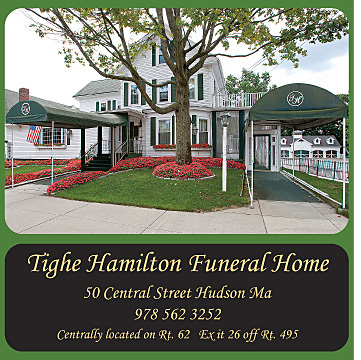

Aug. 5 2020
By Maura Rousseau
The Bolton Board of Health hosted Executive Director of the Central Massachusetts Mosquito Control Project Tim Deschamps to answer questions from the board and residents on July 28.
With Bolton having just joined the program, Deschamps said the project had so far received 77 spraying requests from Bolton residents. Of those requests, 24 were cancelled due to proximity to no-spray areas, and 19 requests remained open.
Since last week, the project has executed 40 collections of 438 mosquitos comprising 12 different species, according to Deschamps. The surveillance results can be found on the project’s website under the “Surveillance Summary” tab, which is published weekly.
In addition, 646 catch basins have been treated with Methoprene, an ingredient commonly used in flea-and-tick treatments for cats and dogs, according to Deschamps.
For those who shared their concerns, Deschamps emphasized the project’s cautious practices. “We are being as careful as we possibly can,” he said, adding that the project would only spray areas that had been specifically requested, and would maintain a safe distance from no-spray areas. Technicians are mindful of buffer zones and take wind direction and speed into account, he noted.
For those who register their property as a no-spray area, the Massachusetts Department of Agriculture states that the requests can take up to 14 days to be registered, but Deschamps stated that the longest wait time he has seen is closer to two to three days.
In the event that EEE is detected in Bolton, or a surrounding town, Deschamps outlined what residents could expect to happen. First, he said, the Massachusetts Department of Public Health would be notified. Next, the CMMCP would begin discussions with the Board of Health as to how they would wish to proceed.
“As you would imagine with the EEE crisis (last year) we did a lot of coordination with our boards of health,” he said, explaining that the CMMCP “always follow the wishes of the town.”
He also noted that last year’s EEE outbreak resulted in aerial spraying by the state. And while CCMCP has no control over aerial spraying, he said, “We act a little bit as the eyes and ears on the ground, if you will.”
In explaining surveillance techniques, Deschamps said that certain methods such as landing count would now not be safe to practice, since EEE has been detected in several Massachusetts towns. The practice involves a method where a technician would count how many mosquitos landed on them in a given amount of time.
In preparation for mosquito season, the Board of Health created a four-tier response plan, which details when certain areas will be sprayed. Parks and Recreation and school properties fall under tier 3, meaning that they will not be sprayed until arbovirus is detected in Bolton or a surrounding town. Parks and Recreation Commission Chairman Ed Sterling explained how the project might benefit their department.
“We had numerous requests from youth sports organizations and parents last fall to have our athletic fields treated for mosquitos,” he said. “The Parks and Recreation Commission does not have the funding to conduct spraying of town athletic fields and we will follow the recommendations of the Commonwealth and the CMMCP with regard to spraying when the EEE risk-level is raised. The town of Bolton joining the CMMCP will give the town more options for preventative measures in controlling mosquitos and the ability to treat playing fields as recommended during times of high EEE risk.”
Conservation Administrator Rebecca Longvall told those gathered that the Bolton Conservation Commission has opted to “exclude the conservation properties for the time being, that are deeded to be managed and maintained by the Conservation Commission. This exclusion is only relative to spraying and not to other services provided by CMMCP.”
While the focus for many is on the human impact of EEE, the virus can also affect animals. Dr. Amy Clark, Associate Veterinarian with Essex Equine, explained how joining CMMCP may benefit those who spend a lot of time working outside. “I hope joining the mosquito project will offer more protections to the horses, but more importantly to the human caretakers of the horses who have to be outside looking after the animals,” Clark said. “We need to know what our risks are, and Bolton is a strong agricultural town, which means many people need to be outside caring for animals and crops. I strongly feel that joining the mosquito project will improve our knowledge of what diseases are circulating in the mosquito population of our town as well as help develop better long-term management of mosquito breeding grounds to help reduce the risk to residents who have no choice regarding staying inside from dusk to dawn.”
CMMCP’s Tim Deschamps welcomed residents to reach out to him at (508) 393-3055 or via the website at https://www.cmmcp.org/

